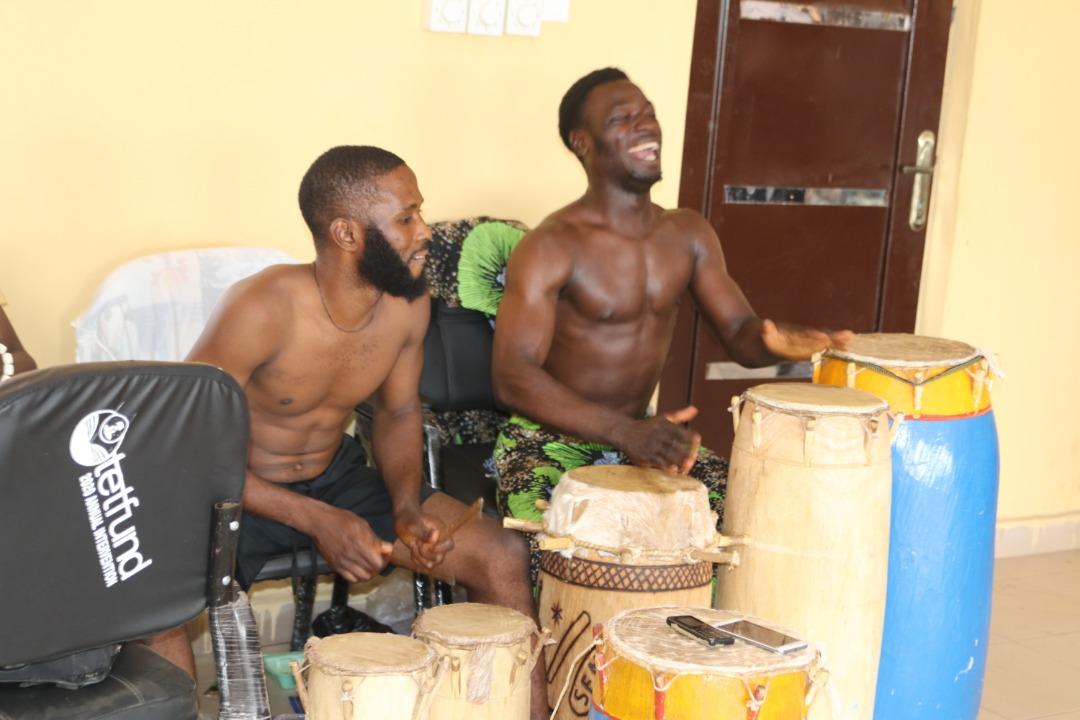The First Technical University, Ibadan community will have the first taste of a convocation play today, March 4, as legendary Emeritus Professor Femi Osofisan’s Love’s Unlike Lading will be on stage at the campus.
Directed by seasoned theatre scholar and producer, Professor Tunji Azeez, the play features young, vibrant and dynamic professional actors and actresses, with a good number of Tech-U staff and students also in the cast.
Azeez says the inclusion of the Tech-Uites is to domesticate the theatrical tradition, while also giving the university an opportunity to be able to stage the play on their own in the future.
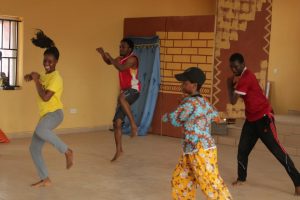
“It is a beautiful culture that Tech-U is starting, and I congratulate the Vice Chancellor and entire management on being able to stage the play,” Azeez, who is a lecturer at the Lagos State University, Ojo, said on Thursday, during the final rehearsal, when the VC, Professor Ayobami Salami, and some media men visited the cast and crew.
It was at the Academic Building where the performance will hold today.
There will be two sessions: the first at 10 am, which is for students; and the second at 4 pm, which is the one for the university leadership and guests, graduating students and guests.
The Director, Centre for Languages and General Studies at Tech-U, Dr Rotimi Mosobalaje, said the show was coming in two sessions to ensure maximum enjoyment.
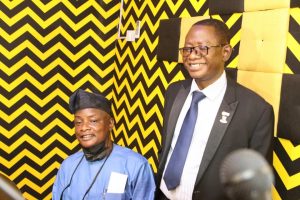
Expressing appreciation for the Thespians’ interest in working with Tech-U, Professor Salami said the university recognised the symbolism of convocation plays and was glad to get the culture instituted at Tech-U.
He said, “By the grace of God, our first convocation will hold tomorrow, March 5, and all hands are on deck to make it a success. The event means a lot to us because it climaxes our dream, vision, philosophy and efforts as far as the university is concerned. Now, we are more excited to have the play come on stream.
“Even before now, we have always shown that we appreciate the role of arts and culture in scholarship, no matter the focus of a university. Education without cultural awareness and development is ill-conceived and will not guarantee sustainable development. At Tech-U, we have invested in documentaries, art-and-culture-related training programmes for our students, just as we have explored the fact that our Public Relations Officer, Akeem Lasisi, is a performance poet, by giving poetic expressions to some of our projects.
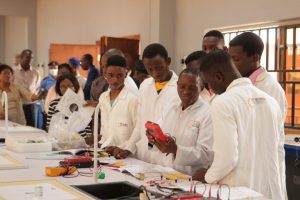
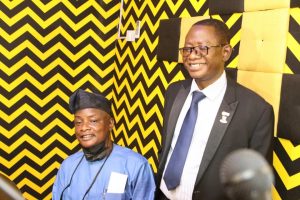

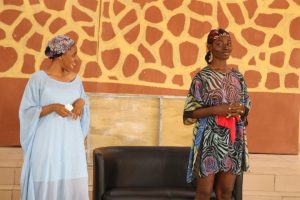
“We are, therefore, happy and proud to engage a play by foremost scholar and writer, Emeritus Professor Femi Osofisan, as our first convocation play. We cannot wait to have the play live on our stage.”
LOVE’S UNLIKE LADING
Love’s Unlike Lading is an adaptation of Shakespeare’s Merchant of Venice. In the play, Osofisan attempts the use of non-Yoruba characters, something he has not done so often.
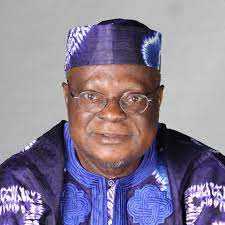
Set in Lagos, the play makes use of situations and characters from the Ijaw speaking Niger-Delta region of Nigeria. The play opens with Boma’s arrival to Lagos to stay with her friend, Tosan, in order to get respite from her home, which has become very inconducive due to her husband’s political activities. Tosan, herself, is in the process of selecting a husband through a contest designed by her late father when Uncle Bash arrives with unsavoury news that Boma’s husband, Tariboh, has been kidnapped for a ransom of fifty million naira. After several unsuccessful attempts to raise the money, Bashiru takes them to meet his brother, Alhaji Fowoshanu. It so happens that the multi-billionaire is also broke and he suggests they go to a loan shark. Lassy,
Fowosanu’s son, takes his uncle, Bashiru, to Mr. Bassey whose daughter, Tumini, he is secretly dating even though there is a long-standing enmity between Mr. Bassey and his father, Alhaji Fowosanu.

Mr. Bassey generously offers them the twenty million they needed. He wants to make some concessions for Alhaji Fowosanu in order to show him that his famous loathing of their business is misguided. But the later wants no concessions whatsoever and opts for the stringent lending rules that Mr. Bassey’s business requires hoping that as soon as his shipload of sugar arrives, he will immediately offset the loan.
Unfortunately for him, it did not turn out so and he finds himself at the mercy of a man he loathes. Mr. Bassey insists on taking Ahaji’s ancestral home which he used as collateral for the loan. Every complication of the play is settled in the court of law presided over by Apena. Mr Bassey is made to lose face as the lawyers were able to prove that he can only take the house and not the land on which it is built. Lassy’s relationship with Tumini is thrown open, Uncle Bash wins the contest to marry Tosan, Uncle Fowoshanu’s shipload of sugar is released by the pirates and Tariboh is also freed.
THE PLAYWRIGHT, FEMI OSOFISAN
Babafemi Adeyemi Osofisan (born June 16, 1946), known as Femi Osofisan or F.O., is a Nigerian writer noted for his critique of societal problems and his use of African traditional performances and surrealism in some of his plays. A frequent theme that his drama explore is the conflict between good and evil. He is a didactic writer whose works seek to correct his decadent society. He has written poetry under the pseudonym Okinba Launko.
Babafemi Adeyemi Osofisan was born in the village of Erunwon, Ogun State, Nigeria, on June 16, 1946, to Ebenezer Olatokunbo Osofisan, a school teacher, lay reader and church organist, and Phoebe Olufunke Osofisan, a schoolteacher. His last name, Ọ̀sọ́fisan, signifies that his paternal ancestors were artists and artisans who worshipped the god of beauty and ornaments, Ọ̀ṣọ́.
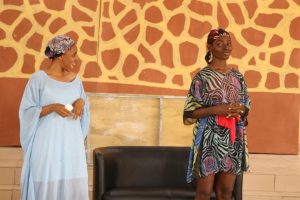
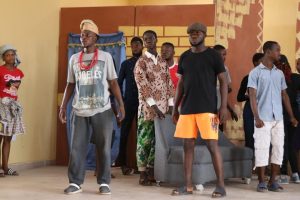
Osofisan attended primary school at Ife and secondary school at Government College, Ibadan. He then attended the University of Ibadan (1966–69), majoring in French and as part of his degree course studying at the University of Dakar for a year, and going on to do post-graduate studies at the Sorbonne, Paris.[3] He subsequently held faculty positions at the University of Ibadan, where he retired as full professor in 2011. He is currently a Distinguished Professor of Theatre Arts, Kwara State University, Nigeria.
Osofisan is Vice President (West Africa) of the Pan African Writers’ Association.
In 2016, he became the first African to be awarded the prestigious Thalia Prize by the International Association of Theatre Critics,[5] the induction ceremony taking place on 27 September.
Osofisan has written and produced more than 60 plays.[7][8] He has also written four prose works: Ma’ami, Abigail, Pirates of Hurt and Cordelia, first produced in newspaper columns, in The Daily Times and then The Guardian. One of his prose works; Ma’ami was adapted into a film in 2011. Several of Osofisan’s plays are adaptations of works by other writers: Women of Owu from Euripides’ The Trojan Women;[9] Who’s Afraid of Solarin? from Nikolai Gogol’s The Government Inspector; No More the Wasted Breed from Wole Soyinka’s The Strong Breed; Another Raft from J. P. Clark’s The Raft; Tegonni: An African Antigone from Sophocles′ Antigone,[10][11] and others.
Osofisan in his works also emphasizes gender: his representation of women as objects, objects of social division, due to shifting customs and long-lived traditions, and also as instruments for sexual exploitation; and his portrayal of women as subjects, individuals capable of cognition, endowed with consciousness and will, and capable of making decisions and effecting actions.

